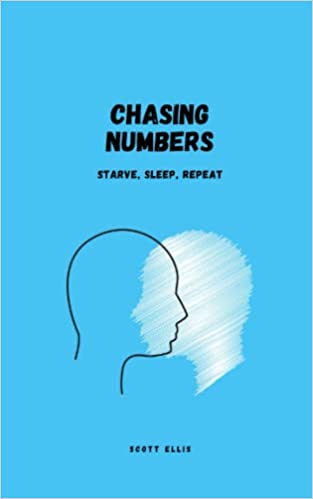After sharing his story with close friends and family, Scott Ellis decided to write and publish his book, Chasing Numbers: Sleep, Starve, Repeat, which sheds a light on eating disorders and discusses his personal experience and recovery from Anorexia Nervosa.
Ellis describes his personal experience with Anorexia as an obsession with restrictions to reach a very low weight.
Anorexia is an eating disorder characterized by abnormally low body weight, an intense fear of gaining weight and a distorted perception of weight, according to the Mayo Clinic.
A study in 2020 showed that approximately one million Canadians were living with an eating disorder, such as Anorexia Nervosa and Bulimia Nervosa.
In North America, although the percentage of men suffering from eating disorders is significantly less than other genders, Ellis said eating disorders is not a commonly discussed topic among men.
"It's quite interesting because when you think of an eating disorder, oftentimes society thinks of that white teenage girl, that's the kind of stereotype of it. When in reality, that's not true. They affect everyone no matter their age. People as young as six and as old as 80 can have eating disorders," said Ellis.
Ellis, who started dieting at the age of 11, figured out he had the disorder seven months into it, after experiencing heavy symptoms and being in and out of the hospital.
"I knew there was something clearly wrong. But my mind didn't go to an eating disorder. And, I never knew anyone that had an eating disorder, either. So I didn't talk about it at all."
After checking his weight constantly and trying different diets, Ellis realized he had Anorexia by learning more about the illness online. In his book, Ellis shared symptoms, such as having low energy, dizziness, fatigue, feeling cold, experiencing hair falling out, and severe heart rate dropping due to the lack of nutrients.
He added that a lot of men have eating disorders but may not speak out due to the stigma surrounding it, which encouraged him to take the step to spark the conversation.
"The lowest my heart rate ever got was 28 which is borderline as low as it goes."
Often, eating disorders progressively get worse which is why it is important to catch and be aware of symptoms early. Ellis encourages that eating disorder topics be taught in schools and at home, adding that in high school one of his first assignments for gym class was tracking calories, which seemed harmless at first.
"We were learning to have a relationship with numbers and not food, and it should be the opposite, we should be learning to have a relationship with food, how to grow food, you know, what food can make us do how it can, keep us healthy."
Some strategies parents at home can implement would be to avoid fad diets and develop a healthy relationship with food.
"I think everyone grows up in diet culture, especially in North America," said Ellis.
In addition to being exposed to diet culture from advertisements on TV and in fitness magazines, social media plays a role as it can add more pressure to attain unreasonable body goals.
Ellis said scrolling through online diets and posts can be harmful to kids going through school when they should be getting the most nutrients in their time of growth and development, which is why it's important to clean one's social media feed and monitor what children are being exposed to.
Ellis's book Chasing Numbers: Sleep, Starve, Repeat. can be found in bookstores and online.
So far, the book has earned about $1,600, all of which will be donated.
All proceeds from his book will be donated to Eating Disorders Nova Scotia in order to help fund programs that support individuals who are suffering from eating disorders.

All proceeds from Chasing Numbers will be donated to Eating Disorders Nova Scotia. Photo contributed.
Listen to the full interview below:


